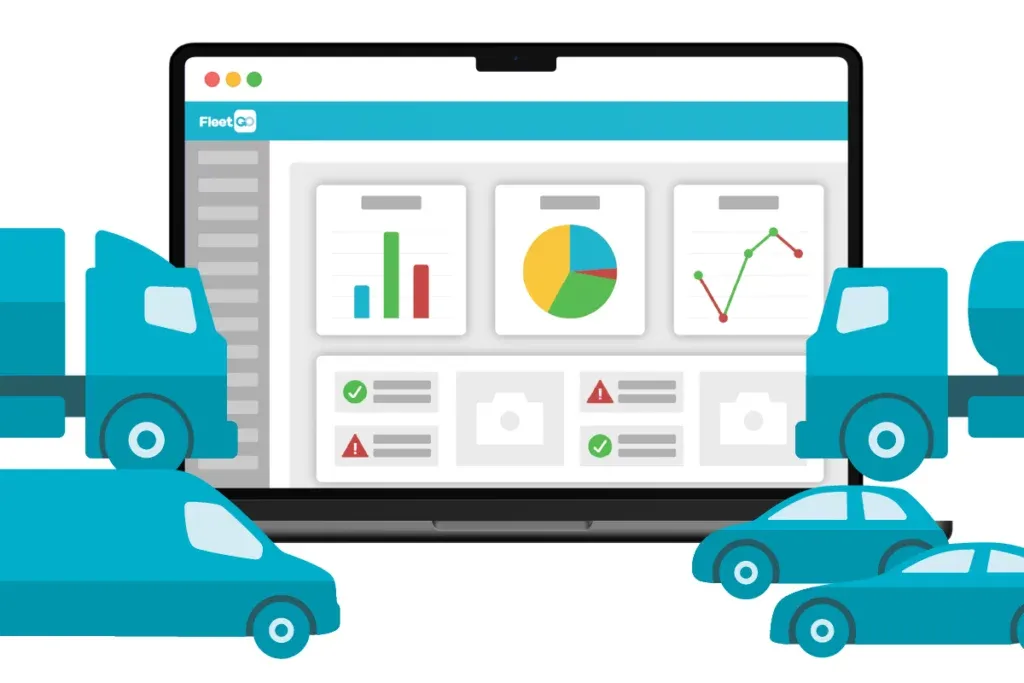With many industries digitising their operations, logistics and transportation companies aren’t left behind. Companies that rely on commercial vehicles to complete daily operations need an efficient fleet management solution. Unlike in the past, logistics companies now rely on fleet management software to monitor resources and receive real-time data from telematics devices installed in their vehicles. Fleet management systems help managers gain visibility into vehicle operations and improve regulatory compliance. The generated reports and predictive analytics improve operations and the return on investment.
What is Fleet Management?
Fleet management is the process of coordinating, organising, and overseeing a group of vehicles, such as cars, vans, or lorries, to optimise their efficiency, performance, and overall cost-effectiveness. This comprehensive approach involves various tasks, including vehicle acquisition, maintenance scheduling, fuel management, driver safety, and regulatory compliance. Effective fleet management helps businesses reduce expenses, improve operational efficiency, and maintain compliance with industry regulations, making it an essential aspect of any organisation with a fleet of vehicles.

With a fleet management solution and vehicle telematics, managers can coordinate various activities, from route planning to fuel management. The software is the central point for supervising real-time vehicle operations. With the data collected, managers can make informed business decisions.
How Does a Fleet Management solution Work?
A fleet management solution collects data from various sources such as fleet vehicles, scheduling software, traffic data, and people within the organisation to efficiently manage fleet operations. The system only works when all its aspects are in place, including:
- Software: Fleet management software offers a dashboard where the fleet manager can access information on the exact locations of their commercial vehicles. The software also displays information on other aspects of vehicle performance and driver safety.
- GPS Tracking: GPS is an integral part of modern fleet management. Being able to track the location of fleet vehicles in real-time allows an organisation to react to problems as they arise.
- Vehicle telematics: Fleet managers rely on telematics to gather information about a vehicle and the driver’s behaviour. For instance, fleet managers can access information on a vehicle’s speed, acceleration, braking intensity and fuel consumption from telematics. With telematics data, managers can schedule repairs and maintenance. Sensors in telematics devices can detect abrupt movements, such as harsh braking or speeding information.
- Maintenance: For a logistics company managing a large fleet, compiling records and maintenance costs is tedious work. However, with a fleet management system, managers can streamline the tracking of maintenance needs for each vehicle. Since reports are automated, compiling records is also straightforward.
Features of a Fleet Management solution
A reliable fleet management solution provides the following functionalities:
- Fleet tracking: A fleet manager should know the location of each truck at any given time. If the logistics company operates hundreds of vehicles, manually tracking fleets is challenging. A fleet management system relies on telematics devices and GPS tracking to increase visibility into fleet operations. The system keeps track of the vehicles and their movements.
- Real-time routing capabilities: Fleet operations change daily, often depending on the company’s transportation needs and delivery schedules. Fleet management software should have real-time dynamic routing for route optimisation. With dynamic route scheduling, managers can incorporate various aspects of the operations and streamline work activities. For instance, the dynamic routing capability can take into account multiple facets of the logistics operations, including the volume of goods, traffic flow, weather conditions and same-day deliveries. Good route optimisation ability helps companies adhere to deadlines and timelines.
- Interoperability with third-party infrastructure: A reliable fleet management system should be compatible with third-party systems to improve visibility. Fleet managers should be able to synchronise data from multiple sources. For instance, the system should receive information from telematics devices and GPS trackers to provide managers with reliable data.
- Electronic proof of delivery: As the logistics industry becomes more digitised, many companies are now going paperless to minimise manual paperwork. To save time, managers can automate manual data entry processes with fleet management software. The system can generate electronic proof of delivery and provide drivers with relevant information.
- Delivery automation: Managers use fleet management software to automate core delivery processes, like task allocation, route planning and scheduling. The system automates deliveries by minimising manual and repetitive processes, such as tracking driver hours and routes for various vehicles. Delivery automation also reduces errors and turnaround times.
What Are the Benefits of a Fleet Management System?
The effective management of fleets offers numerous benefits, including the following:
- Improved efficiency: Fleet management software helps companies monitor the performance of every vehicle in their fleet. For instance, optimising delivery or transport routes reduces the trucks’ delivery times and fuel consumption. Fleet managers can streamline operations, saving the company money over time in fuel costs and improving the performance of trucking operations. Fleet management software also helps fleet managers keep up with the maintenance schedule and reduce the costs associated with operating trucks.
- Improved customer service: A good fleet management solution makes customers happy since they receive on-time deliveries. The fleet manager can optimise routes and track fleet deliveries to ensure customers receive their items on time. In case of bad weather conditions or traffic jams, the fleet manager can estimate the delivery time and then notify customers of the updated delivery details.
- Ensuring compliance: Logistics and transportation companies have numerous regulatory requirements. Fleet managers cannot keep track of compliance documents without good organisation and documentation. Fleet managers who use fleet management software can maintain compliance with the relevant regulations to avoid facing regulatory fines. For instance, the systems keep track of and provide reports on fuel usage, vehicle maintenance schedules and driving distances. With this information at hand, fleet managers can achieve the necessary regulatory compliance.
- Increased profitability: Through improved efficiency, fleet management solutions can help cut costs in fuel consumption. For instance, optimising driving routes can reduce the travel distance and amount of fuel used. Keeping up with the maintenance schedule also reduces downtimes and chances of a crash. When fleet operators cut costs, the earnings increase, availing funds for expansion and increasing service provision.
- Improved safety: Vehicles require regular inspections, maintenance and repairs. Fleet management software helps you keep track of maintenance needs. It also keeps a record of the number of repairs and routine maintenance done. Well-maintained fleets are safer and have minimal downtimes. Fleet management software also tracks driving hours to ensure drivers take breaks and don’t exceed the scheduled times. By capping driving times and monitoring driving behaviour, fleet managers can improve the safety of their fleets and ensure drivers receive the necessary training to improve their driving habits.
- Informed decisions: Fleet management systems generate detailed reports and offer useful analytics for better decision-making. Using this information, fleet managers can find ways to improve operations and increase productivity.
Conclusion
Fleet management solutions help improve the efficiency of managing fleet operations. Fleet management software facilitates the duties of a fleet manager, from route planning and maintenance to safety checks and more. Incorporating the right strategies improves fleet operations and increases profitability.
Sources:
- https://www.forbes.com/advisor/business/what-is-fleet-management/
- https://en.wikipedia.org/wiki/Fleet_management
Disclaimer
This content is provided for informational purposes only and is not meant to be an endorsement or representation by FleetGO.com or any other party. This information may contain inaccuracies or typographical errors, despite our efforts to ensure accuracy. FleetGO.com accepts no responsibility or liability for any errors or omissions, and is not responsible for the contents of any linked website or any link contained in a linked website. Please refer to our full disclaimer for more details.


